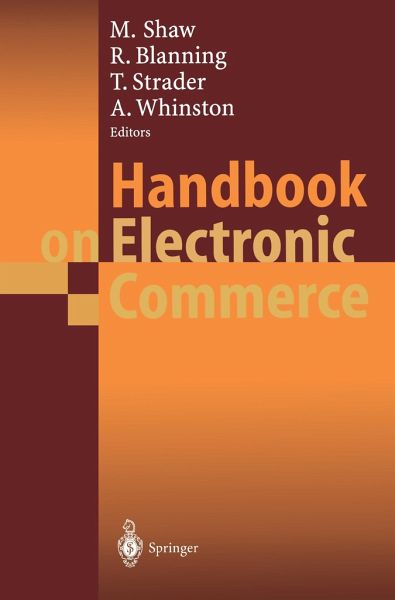
Handbook on Electronic Commerce
Versandkostenfrei!
Versandfertig in 1-2 Wochen
38,99 €
inkl. MwSt.

PAYBACK Punkte
19 °P sammeln!
The U.S. and other developed nations are undergoing a transition from a paper econ omy to a digital economy, not unlike the transition from an oral exchange economy to a physically recorded (clay, papyrus) exchange economy that took place several millennia ago. As with the earlier transition, a change in the medium for recording and reporting transactions (i.e., from oral to written, from written to electronic) is bringing about a significant change in the economic and social system in which they are imbedded. The oral-to-written transition eventually gave us the concepts of property rights, c...
The U.S. and other developed nations are undergoing a transition from a paper econ omy to a digital economy, not unlike the transition from an oral exchange economy to a physically recorded (clay, papyrus) exchange economy that took place several millennia ago. As with the earlier transition, a change in the medium for recording and reporting transactions (i.e., from oral to written, from written to electronic) is bringing about a significant change in the economic and social system in which they are imbedded. The oral-to-written transition eventually gave us the concepts of property rights, commercial law, accounting standards, and financial transparency. What will the written-to-electronic transition give us? The answer is not clear, but we can expect that the economic system that follows this transition will differ substantially from the current system to which we are accustomed. In this book we examine the electronic exchange mechanisms of the emerging digital economy. We do so by examining eight salient topics in electronic commerce (EC). Each of these topics is examined in detail in a separate section of this book.














